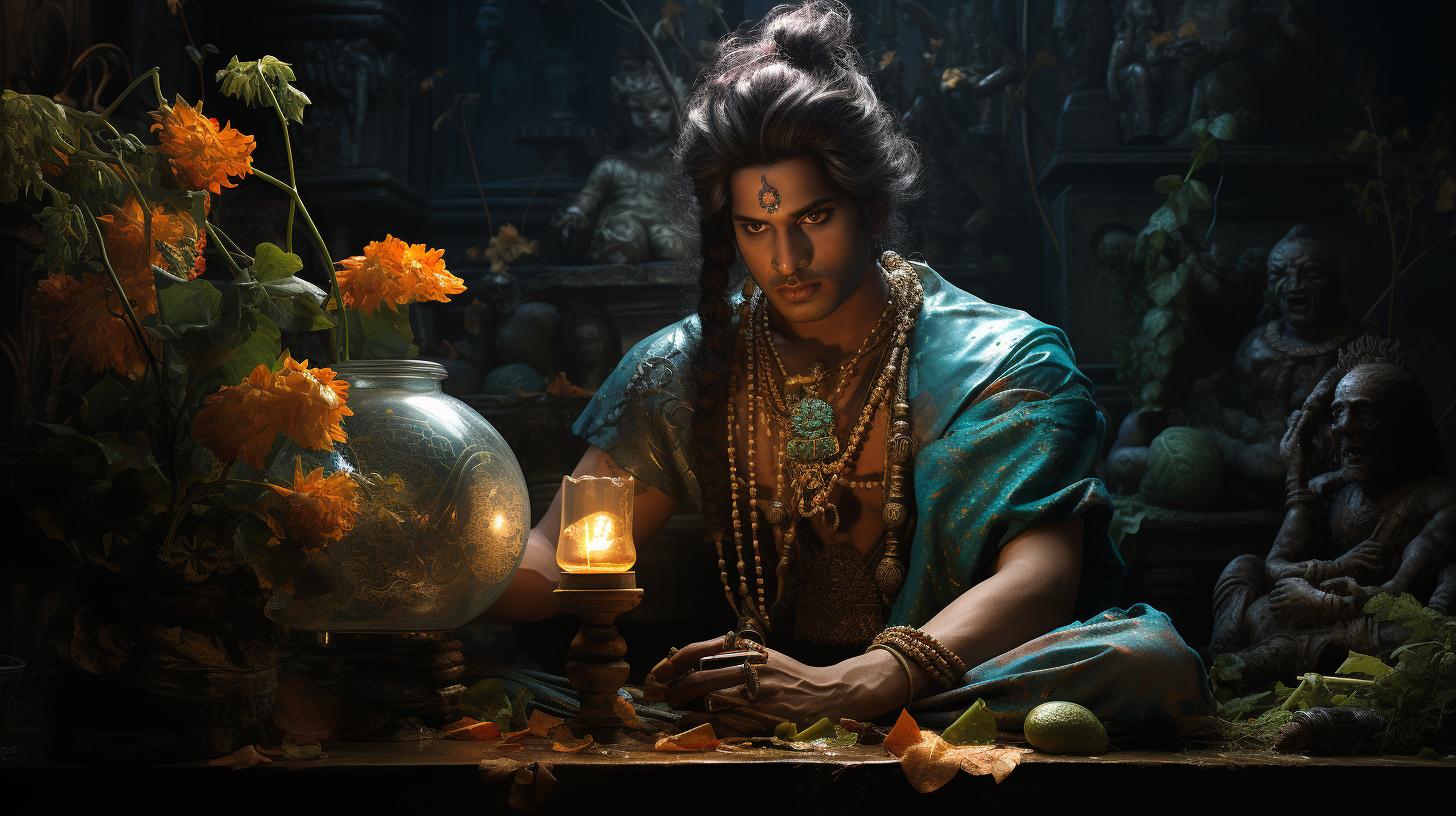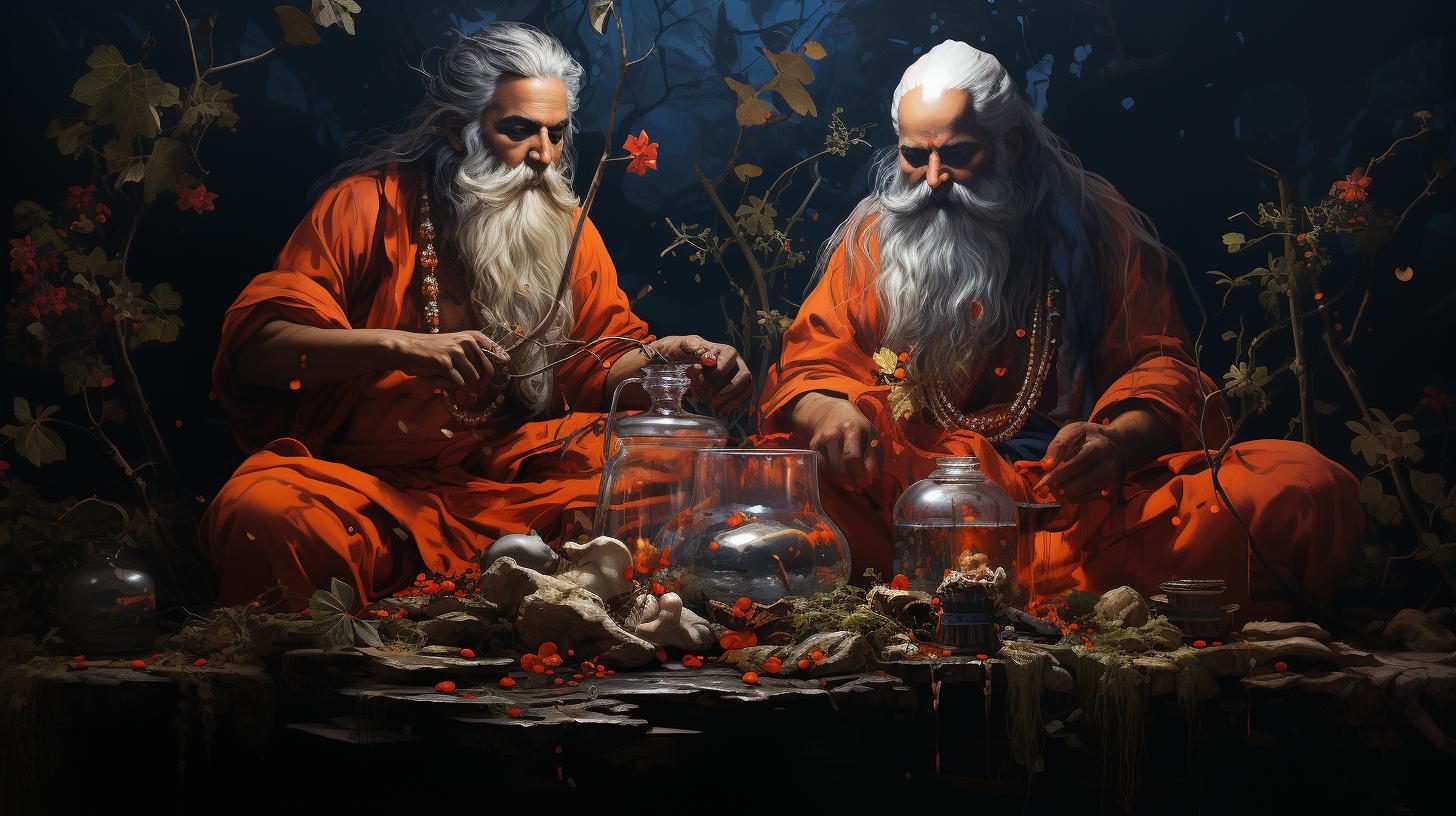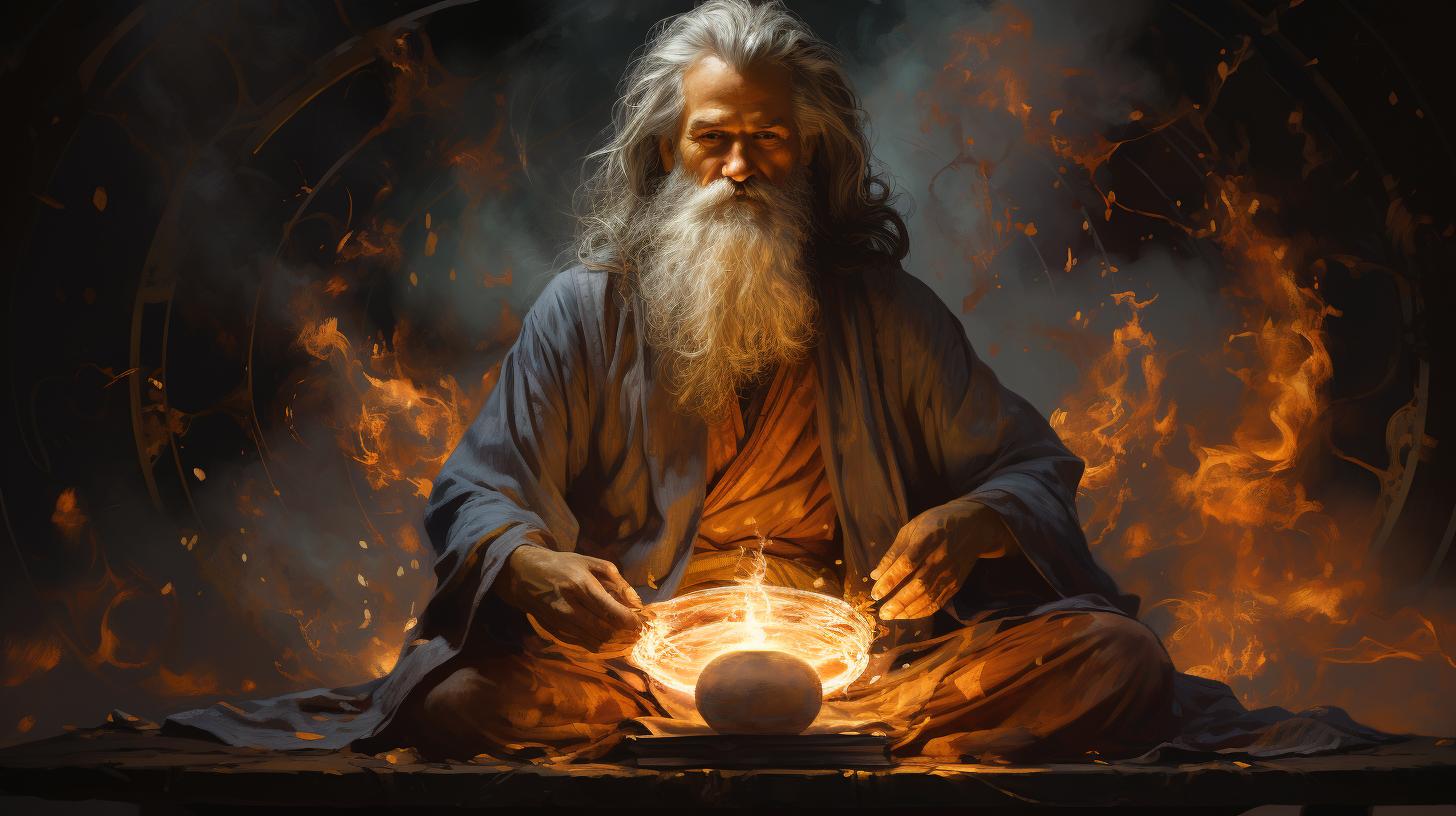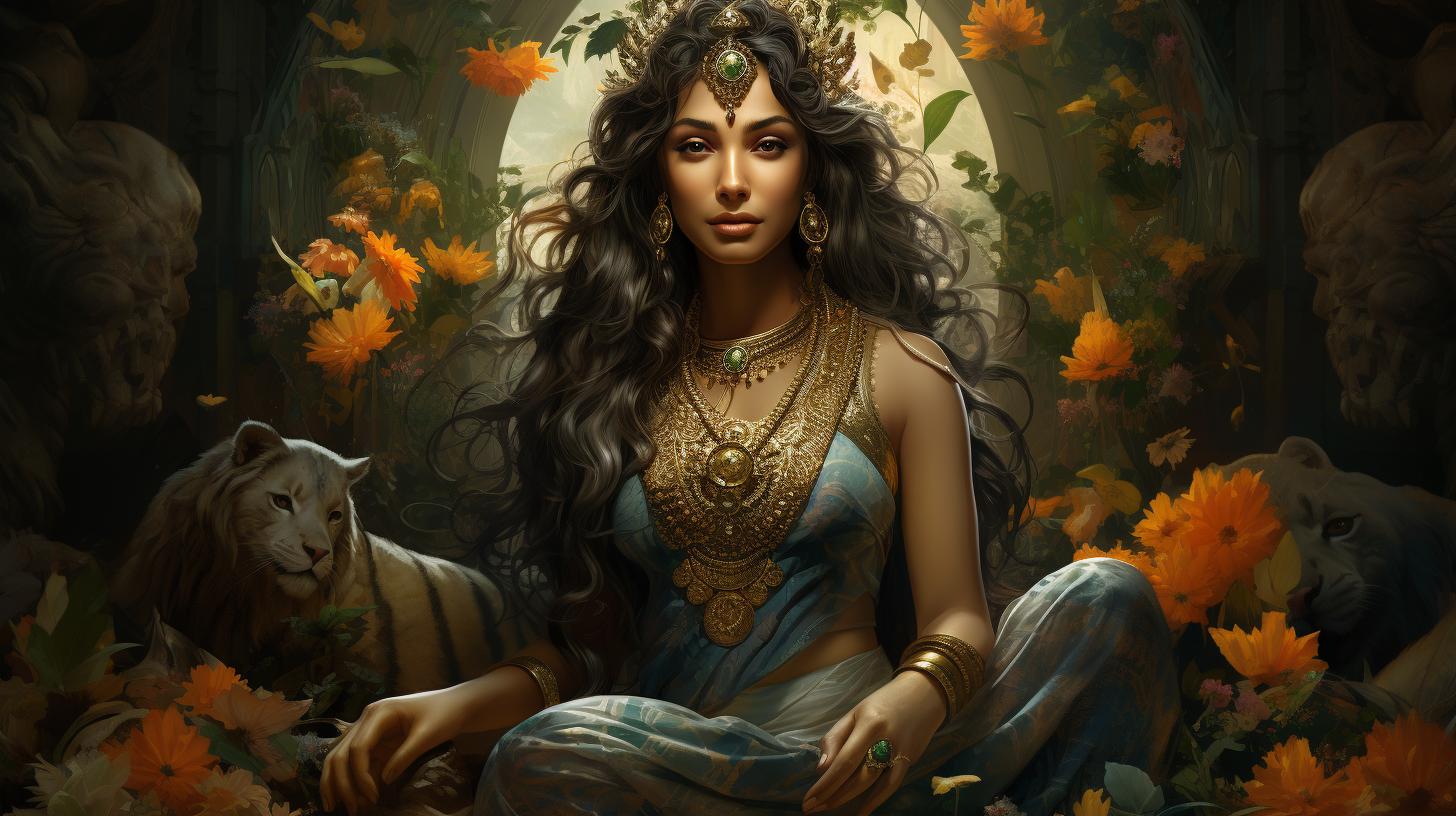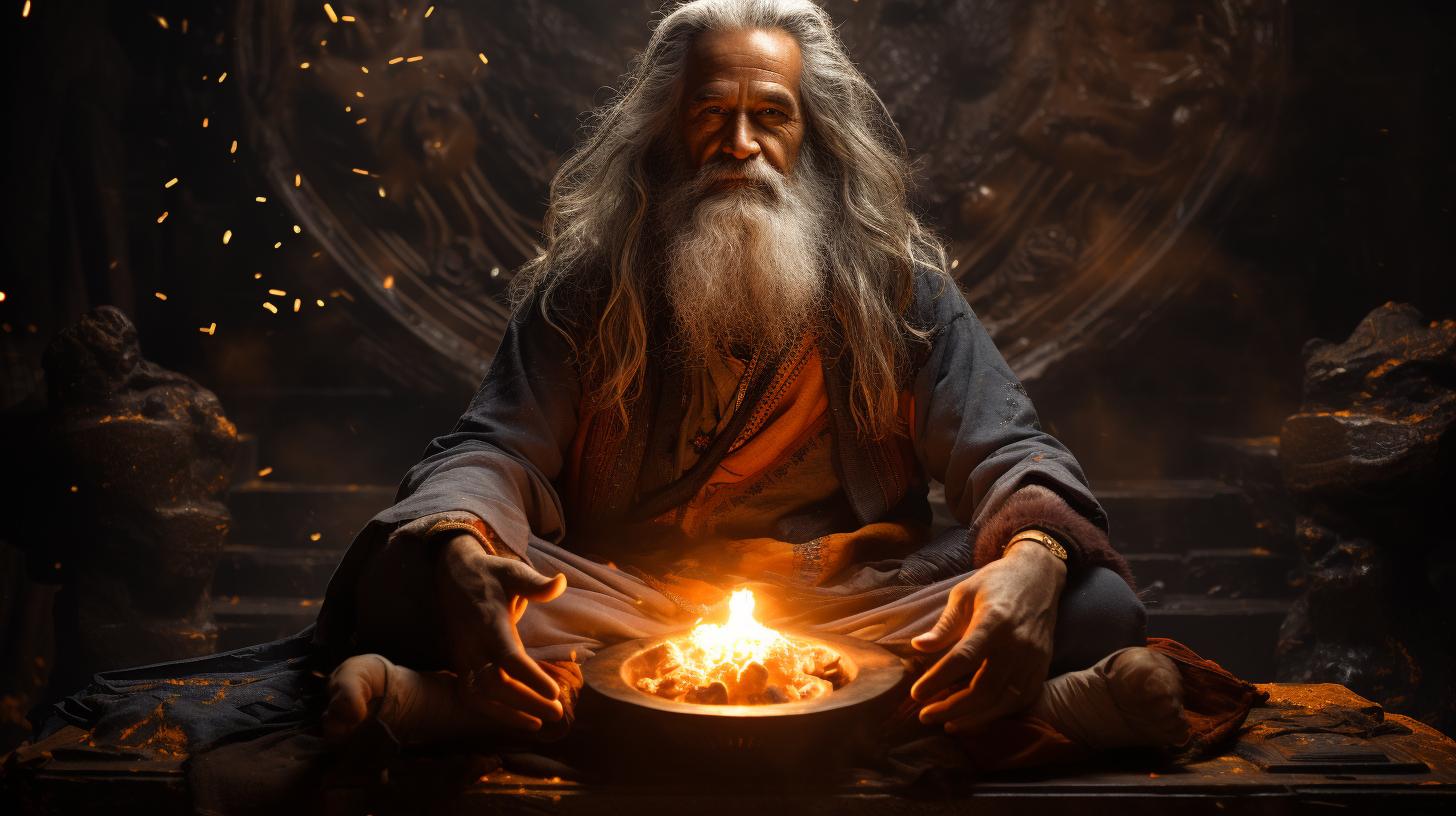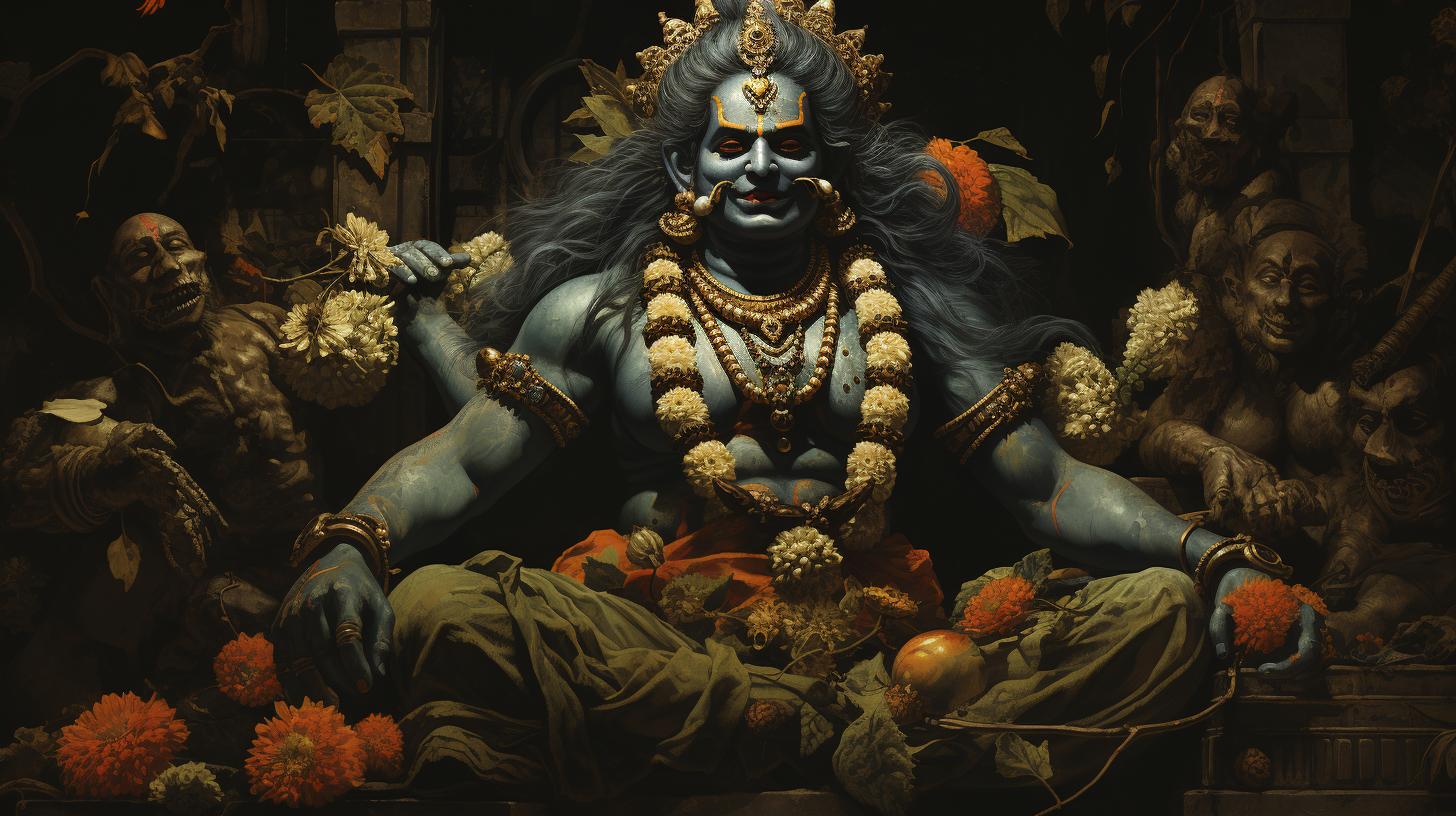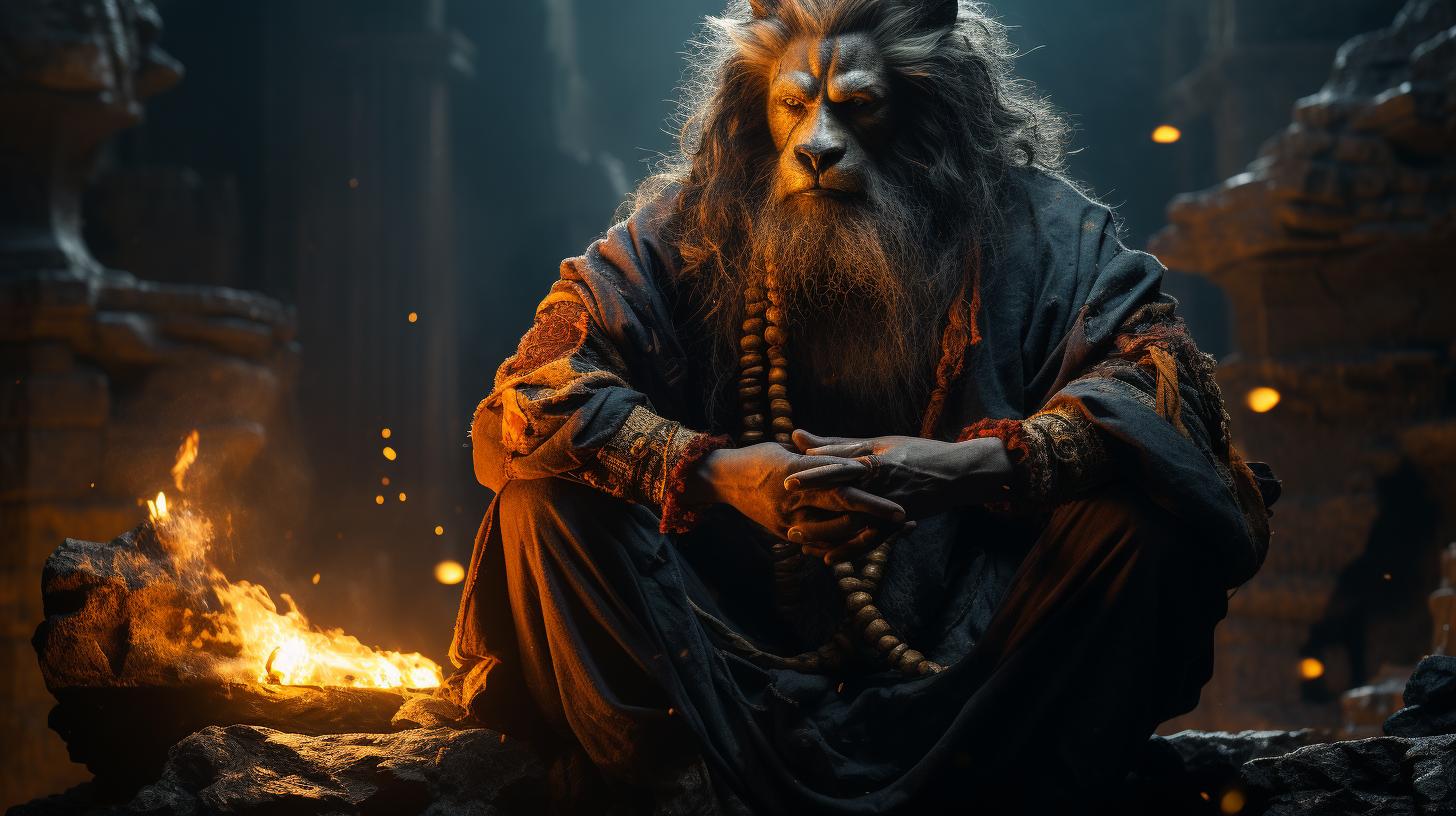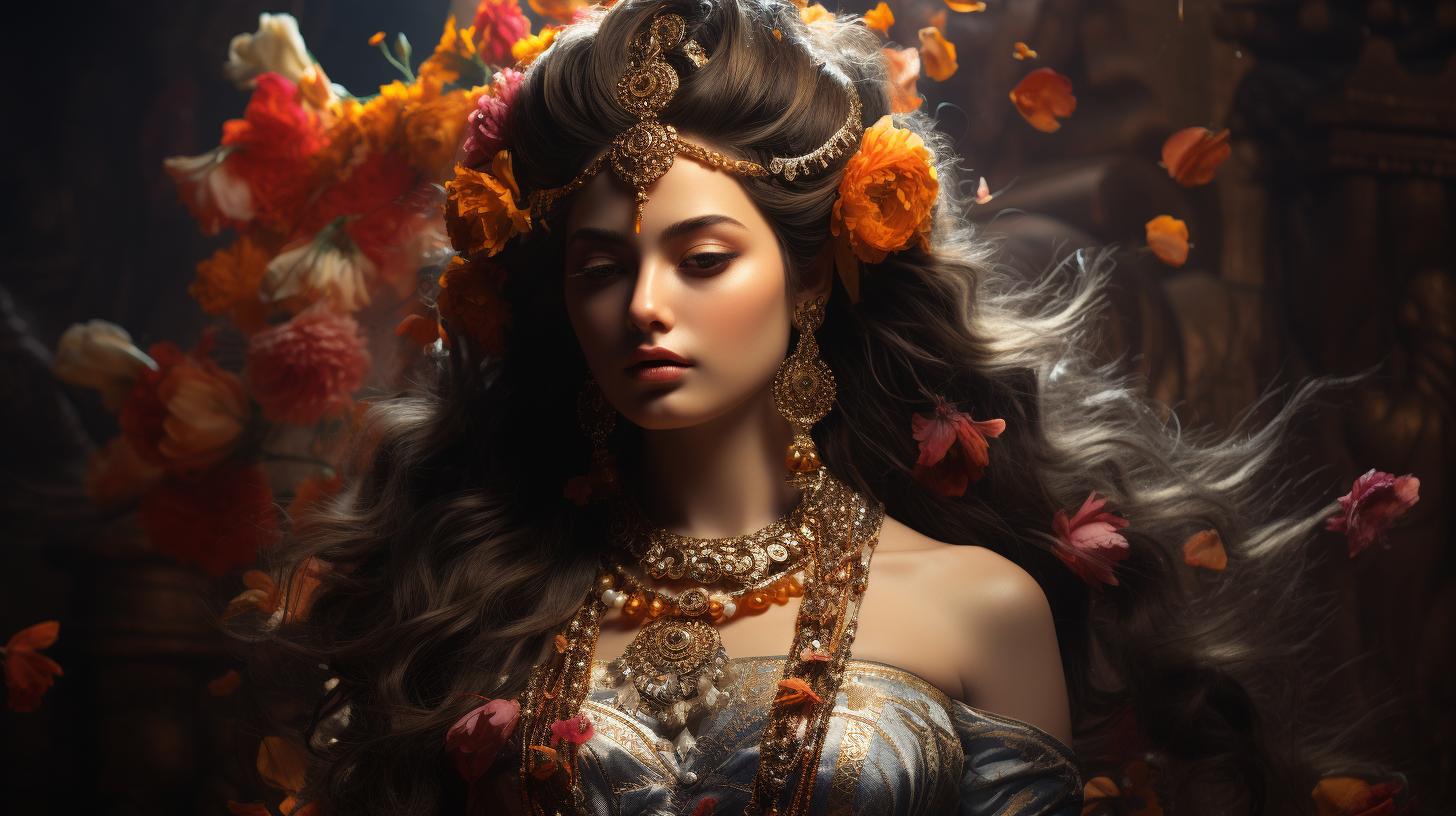Dhanvantari God: Unveiling the Healing Powers of this Ancient Deity in Hinduism
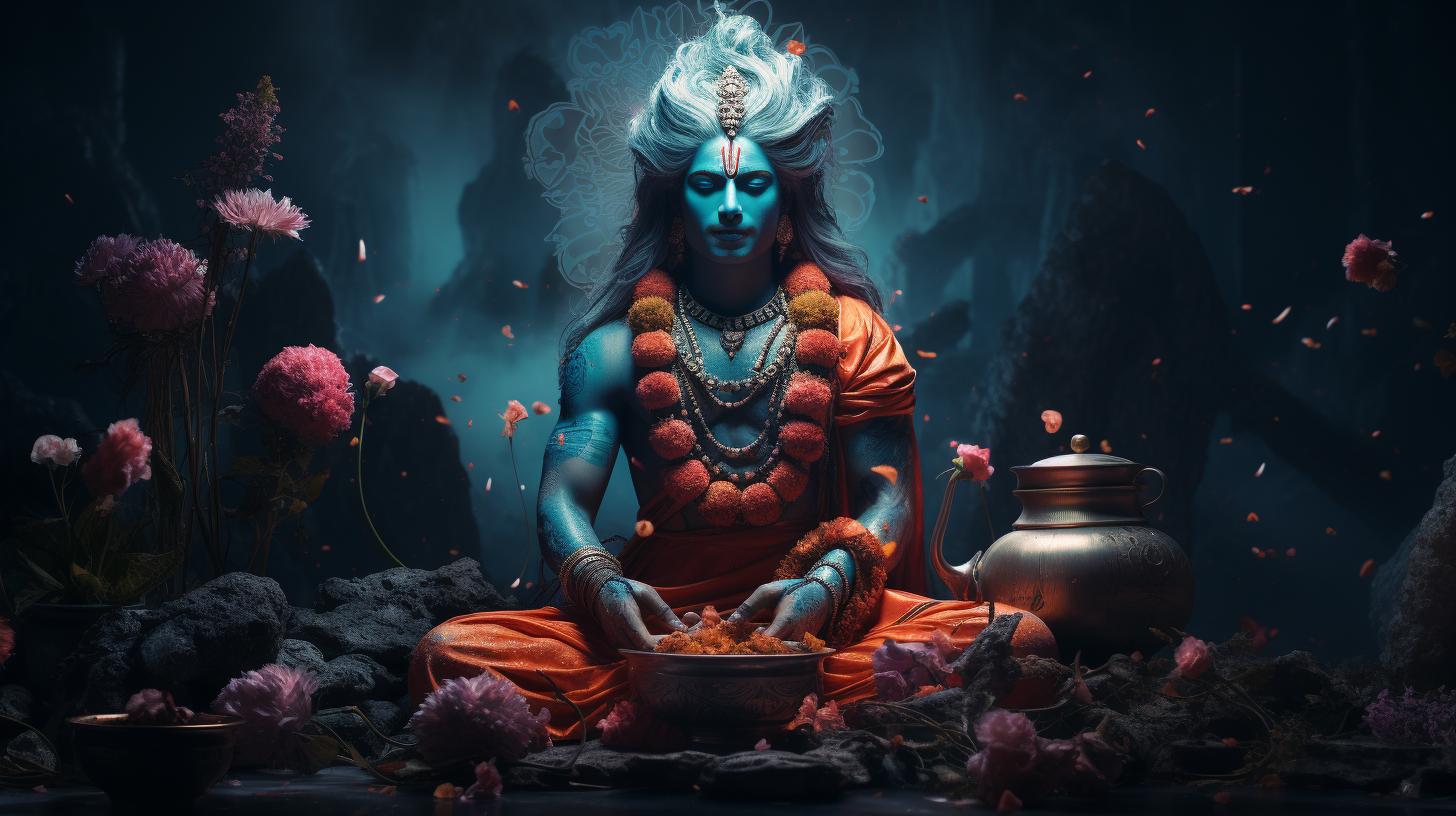
Dhanvantari god is a significant deity in Hinduism, associated with Ayurveda, the ancient Indian system of medicine. Believed to have emerged from the ocean of milk, he holds a pot of nectar and is considered an avatar of Vishnu. Dhanvantari is revered as the father of Ayurveda and is known for teaching it to sages.
Temples dedicated to him exist in India and Nepal, while his birthday, Dhanvantari Jayanti, is celebrated during the festival of Dhanteras. This article explores his origins, significance, and healing powers within Hindu culture.
The Origins of Dhanvantari God
Dhanvantari, a significant deity in Hinduism, has intriguing origins that are shrouded in myth and legend. Let’s delve into the fascinating tales surrounding the birth and emergence of this revered divine figure.
Emergence from the Ocean of Milk
According to Hindu scriptures, Dhanvantari emerged from the churning of the ocean of milk, an event known as Samudra Manthan. As the celestial beings and demons vigorously stirred the ocean, various divine entities manifested, including Dhanvantari.
It is said that Dhanvantari appeared before them, rising from the tumultuous waters, holding a pot of nectar (amrita) in his hands. This divine elixir symbolizes immortality and eternal bliss.
Legend of Lord Indra’s Deputation
Another captivating version of Dhanvantari’s origin tale revolves around his appointment by Lord Indra, the king of the gods.
Lord Indra deputed Dhanvantari to bring Ayurveda, the ancient Indian system of medicine, to the mortal realm and bless humanity with healing knowledge.
This legend underscores Dhanvantari’s divine purpose as the disseminator of Ayurvedic wisdom, entrusted with the mission of alleviating suffering and promoting well-being.
Multiple Versions of Origin Story
Interestingly, there exist multiple versions of the origin story of Dhanvantari. These diverse narratives emphasize his divine nature and his role as a harbinger of healing and healthcare.
In one version, Dhanvantari is believed to be an avatar of Lord Vishnu, the preserver of the universe.
This incarnation further solidifies his significance in Hindu mythology and highlights his divine connection to the cosmic forces of creation and preservation.
These varied accounts contribute to the rich tapestry of Dhanvantari’s origins, illustrating the diverse ways in which this deity is revered and celebrated in Hindu culture.
Dhanvantari God: An Avatar of Vishnu
Dhanvantari is revered as an avatar of Vishnu, one of the principal deities in Hinduism. As an avatar, Dhanvantari embodies the divine presence and qualities of Vishnu, the preserver and protector of the universe.
His association with Vishnu adds to his significance and divine status within Hindu mythology.
As an avatar of Vishnu, Dhanvantari symbolizes the divine power of healing and restoration. He is believed to possess exceptional knowledge and abilities in the realm of medicine and wellness.
This association with Vishnu further reinforces the belief in Dhanvantari’s profound healing powers and his ability to bring solace and well-being to those who worship him.
The avatar of Dhanvantari serves as a reminder of the divine presence within the realm of medicine and healthcare.
It emphasizes the importance of holistic healing and the integration of physical, mental, and spiritual well-being. The reverence for Dhanvantari as an avatar of Vishnu highlights the inseparable connection between spirituality and wellness within Hindu culture.
Dhanvantari and Ayurveda
Dhanvantari, the revered Hindu god, is intimately linked to the ancient Indian system of medicine known as Ayurveda. His profound influence on Ayurveda makes him the embodiment of healing and holistic well-being.
Dhanvantari as the Father of Ayurveda
Dhanvantari holds a significant position in Ayurveda as the father of this ancient healing system. He is believed to have emerged from the churning of the ocean of milk. In his hands, he carries a pot of nectar, symbolizing the essence of Ayurvedic principles and remedies.
As the father of Ayurveda, Dhanvantari imparts divine wisdom and knowledge to mankind, guiding them towards a balanced and harmonious existence. His teachings emphasize the interconnectedness of mind, body, and spirit, promoting overall wellness and harmony.
Teaching Ayurveda to Sages
Dhanvantari’s role in Ayurveda extends beyond being its progenitor. He is revered for sharing his profound knowledge and teaching Ayurvedic principles to sages and ancient physicians, including Susruta. Through his teachings, Dhanvantari ensured the preservation and propagation of Ayurveda across generations.
Dhanvantari’s teachings encompass various facets of Ayurveda, including herbal medicine, dietary practices, lifestyle modifications, and spiritual well-being. He equips sages and practitioners with the wisdom to diagnose and treat ailments using natural remedies, focusing on restoring balance and promoting holistic healing.
By imparting his wisdom to these sages, Dhanvantari laid the foundation for the growth and evolution of Ayurveda as a comprehensive system of medicine, influencing traditional healing practices in India and beyond.
The Worship and Reverence of Dhanvantari
Dhanvantari holds a significant place in Hindu worship and is highly revered for his healing powers. This section explores the temples dedicated to Dhanvantari and the celebration of Dhanvantari Jayanti.
Temples Dedicated to Dhanvantari
Throughout India and Nepal, temples devoted to Dhanvantari can be found, signifying the importance of this deity in the Hindu culture.
These temples serve as places of worship and pilgrimage for followers seeking blessings of health and wellbeing. While specific information about these temples is not provided, references indicate their existence in regions such as Maharashtra, Kerala, Tamil Nadu, Puducherry, and Nepal.
Celebration of Dhanvantari Jayanti
Dhanvantari Jayanti, the birthday of Dhanvantari, is celebrated on the auspicious occasion of Dhanteras. This festival is particularly significant for practitioners of Ayurveda, as they express gratitude towards the god of medicine and seek his blessings for their healing practices.
During this celebration, rituals, prayers, and special ceremonies take place to honor Dhanvantari and his contributions to the field of medicine.
In conclusion, the worship and reverence of Dhanvantari are demonstrated through the presence of dedicated temples and the festivities surrounding Dhanvantari Jayanti.
These traditions highlight the important role this deity plays in the lives of individuals seeking physical and spiritual wellness, particularly in the context of Ayurveda.
Symbolism and Iconography of Dhanvantari
Dhanvantari, the deity associated with Ayurveda and healing, carries significant symbolism in Hinduism. While there are no detailed descriptions of Dhanvantari’s physical appearance, his iconography often portrays him holding a pot of nectar, representing the life-giving and healing properties of Ayurveda.
The pot of nectar held by Dhanvantari is believed to symbolize the power to restore health and prolong life. It signifies his role as the bestower of healing and rejuvenation. This imagery highlights his association with medical knowledge and is a reminder of the divine origins of Ayurveda.
Furthermore, the emergence of Dhanvantari from the churning of the ocean of milk symbolizes the retrieval of knowledge and enlightenment. It represents the uncovering of hidden wisdom and the revelation of Ayurvedic principles that can bring harmony and balance to one’s life.
Though not explicitly described in texts, Dhanvantari is often depicted in artwork and sculptures in temples dedicated to him. These depictions typically portray him with four hands, holding the pot of nectar, a discus (chakra), and a conch shell (shankha).
This symbolism represents his association with Vishnu and signifies his divine attributes.
The image of Dhanvantari serves as a reminder of the healing powers that exist in the world and the importance of seeking knowledge and wisdom in the pursuit of good health and well-being.
Healing Powers of Dhanvantari
Dhanvantari, being the deity associated with Ayurveda, possesses profound healing powers. His presence in Hindu mythology highlights the belief in his ability to bring relief and cure ailments. Here are some aspects of Dhanvantari’s healing abilities:
Divine Healing: As an avatar of Vishnu, Dhanvantari is believed to possess divine healing powers.
It is believed that his blessings can bring about miraculous recoveries and alleviate suffering.
Ayurvedic Knowledge: Dhanvantari is revered as the father of Ayurveda, the ancient Indian system of medicine. With his extensive knowledge, he guides practitioners to understand the healing properties of herbs, substances, and therapies.
His teachings encompass holistic approaches to balance the mind, body, and spirit.
Restoration and Rejuvenation: Dhanvantari’s influence extends to rejuvenation therapies aimed at restoring vitality and promoting overall well-being. Ayurvedic practices associated with Dhanvantari focus on harmonizing the body’s elements, purifying toxins, and nurturing inner balance.
Relief from Physical and Mental Disorders: Devotees believe that invoking Dhanvantari can help alleviate various physical and mental ailments. His healing energy is said to provide relief from illnesses, chronic conditions, and even psychological distress, fostering a state of inner harmony.
Inner Transformation: Dhanvantari’s healing powers encompass not only physical well-being but also the restoration of spiritual and emotional harmony. The path of Ayurveda, guided by Dhanvantari’s wisdom, allows individuals to cultivate a deeper understanding of themselves and promote personal growth.
Undoubtedly, Dhanvantari’s healing powers and association with Ayurveda make him a revered figure in Hindu mythology, providing hope, knowledge, and solace to those seeking remedial measures for their ailments.
Cultural Significance of Dhanvantari in Hinduism
The presence of Dhanvantari in Hindu mythology extends beyond his role as the father of Ayurveda and his association with healing. He holds a significant place among other deities and figures in Hinduism, while also influencing Indian medical traditions.
Association with Other Deities and Figures
Dhanvantari is often depicted alongside other important Hindu deities and figures, symbolizing his interconnectedness and the holistic nature of healing. One such association is with Lord Vishnu, as Dhanvantari is considered an avatar of Vishnu. This association emphasizes his divine nature and represents the harmonious relationship between medicine and spirituality.
Moreover, Dhanvantari is closely linked to Lord Indra, who deputed him to bring Ayurveda to mortals. This association highlights the sacred origins of Ayurveda and its divine connection, reinforcing the belief that Ayurvedic practices possess divine healing powers.
Influence on Indian Medical Traditions
Dhanvantari’s teachings and principles form the foundation of the Indian medical system, Ayurveda. His role in imparting Ayurvedic knowledge to sages like Susruta has shaped the practice and understanding of medicine in India for centuries.
Ayurveda encompasses not only physical healing but also mental, emotional, and spiritual well-being. Dhanvantari’s influence on Indian medical traditions goes beyond mere treatment of ailments. It emphasizes a holistic approach to health and wellness, focusing on balancing the body, mind, and spirit.
- Ayurveda promotes natural remedies derived from herbs, minerals, and other natural substances, aligning with the principles of Dhanvantari’s teachings.
- His association with surgery, signified by the term “Dhanus,” reinforces the importance of surgical techniques and knowledge in ancient Indian medical practices.
- Dhanvantari’s emphasis on preventive care and maintaining a healthy lifestyle continues to inspire practitioners of Ayurveda.
The influence of Dhanvantari on Indian medical traditions is deeply ingrained in the culture and continues to shape healthcare practices in modern India, blending ancient wisdom with contemporary advancements.
FAQs about Dhanvantari God
- Q: Who is Dhanvantari God?
- Q: What are the origins of Dhanvantari God?
- Q: Is Dhanvantari considered an avatar of Vishnu?
- Q: What is the connection between Dhanvantari and Ayurveda?
- Q: Where are temples dedicated to Dhanvantari located?
- Q: When is Dhanvantari Jayanti celebrated?
- Q: What is the significance of Dhanvantari in Hinduism?
- Q: Does Dhanvantari have any association with other deities or figures?
A: Dhanvantari is an important deity in Hinduism, often referred to as the father of Ayurveda. He is associated with healing and is believed to have emerged from the ocean of milk holding a pot of nectar.
A: According to legends, Dhanvantari emerged during the churning of the ocean of milk. There are multiple versions of his origin story, including one where he is deputed by Lord Indra to bring Ayurveda to mortals.
A: Yes, Dhanvantari is revered as an avatar of Lord Vishnu, one of the principal deities of Hinduism. He is recognized for his healing powers and is highly respected in the context of Ayurvedic medicine.
A: Dhanvantari is widely regarded as the father of Ayurveda, the ancient Indian system of medicine. He is believed to have taught Ayurvedic principles to sages and played a crucial role in the development of this holistic healing tradition.
A: Temples dedicated to Dhanvantari can be found in various regions of India and Nepal. While specific information about these temples is not provided, mentions of their existence can be found in Maharashtra, Kerala, Tamil Nadu, Puducherry, and Nepal.
A: Dhanvantari Jayanti, the birthday of Dhanvantari, is celebrated on the day of Dhanteras. This festival is observed by practitioners of Ayurveda and is an occasion to honor the healing powers associated with Dhanvantari.
A: Dhanvantari holds great cultural significance in Hinduism due to his association with healing and Ayurveda. He is revered for his knowledge and is considered an important figure in Indian medical traditions.
A: While the specific associations are not mentioned, Dhanvantari is part of the intricate pantheon of Hindu gods and goddesses.
His role as the deity of healing and his connection to Lord Vishnu elevate his importance within the Hindu religious framework.
.











